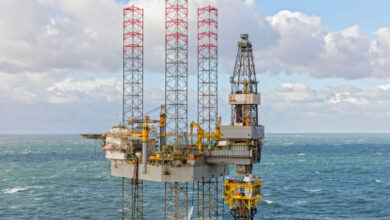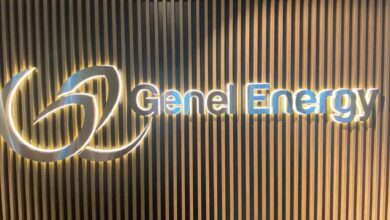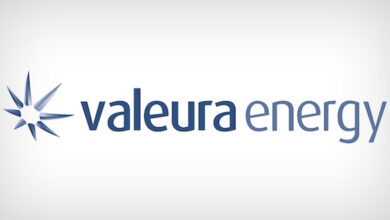Salazar Names Members of Ocean Energy Safety Advisory Committee to Guide Oil and Gas Regulatory Program Reform: Noble’s Don Jacobsen represents drilling industry
Secretary of the Interior Ken Salazar and Bureau of Ocean Energy Management, Regulation and Enforcement (BOEMRE) Director Michael R. Bromwich today announced the members of the Ocean Energy Safety Advisory Committee, a permanent advisory body of the nation’s leading scientific, engineering, and technical experts who will provide critical guidance on improving offshore drilling safety, well containment, and spill response as we explore new energy frontiers.
Don Jacobsen, Senior Vice President – Operations, Noble Drilling Services, Inc., is the lone drilling contractor on the panel.
Secretary Salazar has asked former Sandia National Laboratory Director Tom Hunter, who was a key member of the scientific team assembled to assist with the containment and capping of the BP’s Macondo well, to lead the body as chairman.
“This Safety Committee will help us address some of the most significant issues that will arise as offshore drilling moves forward, said Secretary Salazar. “With Dr. Tom Hunter’s leadership, we have brought together some of the most experienced and knowledgeable people in the country to help ensure that safety standards, well containment capabilities, and regulations never again fall behind drilling technology and practices.”
“The Safety Committee will play an important role in bringing to bear the expertise, ideas and experience of some of the most knowledgeable people in industry, academia and elsewhere on offshore drilling and safety issues,” said BOEMRE Director Bromwich. “It will play a central role in facilitating the exchange of information and ideas, the sharing of best practices, and the development of expertise on issues related to offshore energy safety. It will also help us work through some of the more challenging issues we may face in the future, including drilling in frontier areas including the Arctic and ultra deepwater.”
The Safety Committee has 15 members representing federal agencies, the offshore oil and gas industry, academia, national labs and various research organizations. Committee representatives from the offshore industry are: Charlie Williams, Chief Scientist for Well Engineering and Production Technology, Shell Oil Company; Paul Siegele, President, Chevron’s Energy Technology Company; Joseph Gebara, Senior Manager, Structural Engineer, Technip USA, Inc.; and Mr Jacobsen.
Committee members representing the academic community and non-governmental organizations are: Nancy Leveson, Professor, System Safety and Process Safety, Massachusetts Institute of Technology; Richard Sears, Senior Science and Engineering Advisor and Chief Scientist, National Commission on the BP Deepwater Horizon Oil Spill and Offshore Drilling; Tad Patzek, Professor and Chairman, Department of Petroleum and Geosystems Engineering, University of Texas at Austin; and Lois Epstein, Arctic Program Director, The Wilderness Society.
Federal Government designees on the committee are: Walter Cruickshank, the Deputy Director of the Bureau of Ocean Energy Management, Regulation and Enforcement, Department of the Interior; Christopher Smith, Deputy Assistant Secretary for Oil and Natural Gas in the Office of Fossil Energy, Department of Energy; CAPT. Patrick Little, Commanding Officer, Marine Safety Center, U.S. Coast Guard; Mathy Stanislaus, Assistant Administrator for Solid Waste and Emergency Response, Environmental Protection Agency; David Westerholm, Director, Office of Response and Restoration, National Oceanic and Atmospheric Administration.; and Steve Hickman, a geophysicist with the U.S. Geological Survey, Department of the Interior.
The creation of the Safety Committee was announced on Jan. 19, 2011 and a federal register notice solicited nominations and recommendations that guided Secretary Salazar’s selection and appointments. The Committee may establish technical working groups to focus on critical areas related to offshore drilling, such as Drilling and Workplace Safety; Intervention and Containment; and Oil Spill Response. The Safety Committee is established in accordance with the Federal Advisory Committee Act (FACA).
The Deepwater Horizon incident highlighted significant shortcomings in offshore drilling safety practices, the lack of preparedness on the part of industry to contain a deepwater blowout in a timely manner, and our reliance on outdated oil spill response equipment and procedures. For 30 years, as oil and gas companies ventured into deeper waters in the Gulf of Mexico and developed more sophisticated drilling technologies, safety practices and equipment trailed behind. In the aftermath of the spill, many have recognized the need for more collaboration among government, industry, and academia on issues related to offshore energy safety, including workplace and drilling safety, blowout containment and spill response.
Don Jacobsen, Senior Vice President – Operations, Noble Drilling Services, Inc., is the lone drilling contractor on the panel.
Secretary Salazar has asked former Sandia National Laboratory Director Tom Hunter, who was a key member of the scientific team assembled to assist with the containment and capping of the BP’s Macondo well, to lead the body as chairman.
“This Safety Committee will help us address some of the most significant issues that will arise as offshore drilling moves forward, said Secretary Salazar. “With Dr. Tom Hunter’s leadership, we have brought together some of the most experienced and knowledgeable people in the country to help ensure that safety standards, well containment capabilities, and regulations never again fall behind drilling technology and practices.”
“The Safety Committee will play an important role in bringing to bear the expertise, ideas and experience of some of the most knowledgeable people in industry, academia and elsewhere on offshore drilling and safety issues,” said BOEMRE Director Bromwich. “It will play a central role in facilitating the exchange of information and ideas, the sharing of best practices, and the development of expertise on issues related to offshore energy safety. It will also help us work through some of the more challenging issues we may face in the future, including drilling in frontier areas including the Arctic and ultra deepwater.”
The Safety Committee has 15 members representing federal agencies, the offshore oil and gas industry, academia, national labs and various research organizations. Committee representatives from the offshore industry are: Charlie Williams, Chief Scientist for Well Engineering and Production Technology, Shell Oil Company; Paul Siegele, President, Chevron’s Energy Technology Company; Joseph Gebara, Senior Manager, Structural Engineer, Technip USA, Inc.; and Mr Jacobsen.
Committee members representing the academic community and non-governmental organizations are: Nancy Leveson, Professor, System Safety and Process Safety, Massachusetts Institute of Technology; Richard Sears, Senior Science and Engineering Advisor and Chief Scientist, National Commission on the BP Deepwater Horizon Oil Spill and Offshore Drilling; Tad Patzek, Professor and Chairman, Department of Petroleum and Geosystems Engineering, University of Texas at Austin; and Lois Epstein, Arctic Program Director, The Wilderness Society.
Federal Government designees on the committee are: Walter Cruickshank, the Deputy Director of the Bureau of Ocean Energy Management, Regulation and Enforcement, Department of the Interior; Christopher Smith, Deputy Assistant Secretary for Oil and Natural Gas in the Office of Fossil Energy, Department of Energy; CAPT. Patrick Little, Commanding Officer, Marine Safety Center, U.S. Coast Guard; Mathy Stanislaus, Assistant Administrator for Solid Waste and Emergency Response, Environmental Protection Agency; David Westerholm, Director, Office of Response and Restoration, National Oceanic and Atmospheric Administration.; and Steve Hickman, a geophysicist with the U.S. Geological Survey, Department of the Interior.
The creation of the Safety Committee was announced on Jan. 19, 2011 and a federal register notice solicited nominations and recommendations that guided Secretary Salazar’s selection and appointments. The Committee may establish technical working groups to focus on critical areas related to offshore drilling, such as Drilling and Workplace Safety; Intervention and Containment; and Oil Spill Response. The Safety Committee is established in accordance with the Federal Advisory Committee Act (FACA).
The Deepwater Horizon incident highlighted significant shortcomings in offshore drilling safety practices, the lack of preparedness on the part of industry to contain a deepwater blowout in a timely manner, and our reliance on outdated oil spill response equipment and procedures. For 30 years, as oil and gas companies ventured into deeper waters in the Gulf of Mexico and developed more sophisticated drilling technologies, safety practices and equipment trailed behind. In the aftermath of the spill, many have recognized the need for more collaboration among government, industry, and academia on issues related to offshore energy safety, including workplace and drilling safety, blowout containment and spill response.




